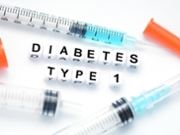|
|
 
Researchers on the 2019 Weddell Sea Expedition, aiming to find the HMS Endurance shipwreck, discovered geometric patterns on the seafloor created by yellowfin notie fish, according to a study in Frontiers in Marine Science. These patterns, observed with an underwater vehicle, highlight the rich biodiversity of the Weddell Sea, prompting calls for legal protection of the ecosystem. |
|
|
|
|
Flow keeps classes, rosters, assignments, and grades aligned across your Student Information System and Learning Management System, reducing manual work and keeping data accurate. See how Flow works. |
|
|
|
| ADVERTISEMENT |  |
|
 
Researchers have discovered a nearly complete skeleton of a previously unknown rhinoceros species, Epiaceratherium itjilik, which lived in the Canadian Arctic about 23 million years ago, according to a study in Nature Ecology and Evolution. The species, dubbed the "frosty rhino," was smaller and slimmer than modern rhinos and lacked a horn.
| Full Story: Earth (10/30) |
|
|
| |
 |
| (DrPixel/Getty Images) |
Scientists using the Daniel K. Inouye Solar Telescope have observed Alfven waves in the sun's corona for the first time, potentially solving a long-standing mystery about why the corona is much hotter than the sun's surface. According to research in Nature Astronomy, the waves could account for at least half of the energy needed to heat the corona, previously attributed to magnetic reconnection. |
|
A study in the Proceedings of the National Academy of Sciences reveals that baleen whales significantly enhance ocean primary productivity by excreting nutrients such as nitrogen, phosphorus, and iron. The study, focusing on the Greenland, Norwegian and Iceland Seas, finds that whales recycle nitrogen and phosphorus daily during the feeding season, increasing primary productivity by up to 10% in certain areas and benefiting the entire marine food web. |
|
Researchers at Northwestern University have identified a "geometric code" in the human genome, revealing that DNA's 3D structure plays a crucial role in cellular computation and memory. The study, published in Advanced Science, shows that DNA folds into nanoscale domains that create physical memory nodes, which store and stabilize genetic activity. |
|
Children and teens who experience COVID-19 reinfection face a doubled risk of long COVID, according to a study published in The Lancet Infectious Diseases. Reinfection was linked to triple the risk of myocarditis, more than double the risk of life-threatening blood clots, nearly twice the risk of acute kidney injury, and an increase in debilitating symptoms such as cognitive impairment and altered taste or smell. |
|
| |
 |
| (Adrian825/Getty Images) |
Adolescents and young adults with autoimmune diseases are more than twice as likely to develop type 1 diabetes compared with those without autoimmune diseases, according to a study in Diabetes Care that analyzed data from more than 1.4 million people. "We need to increase awareness to specific risk factors and clinical scenarios that are associated with higher risk for type 1 diabetes, and that require additional workup to better differentiate between the various etiologies of hyperglycemia," says researcher Dr. Amir Tirosh. |
|
|
|
|
Today's shoppers expect a smooth journey from browsing to checkout, no matter if they are in-store, online or both. Our customer experience guide explores how you, the retailer, can simplify the purchase process, reduce friction, and create shopper confidence. Read the guide. |
|
|
|
| ADVERTISEMENT |  |
|
 
|
Shengmin Sang, a professor at North Carolina Agricultural and Technical State University, has secured a $3.2 million, five-year NIH grant to investigate how plant-based diets impact cardiovascular disease. Sang will conduct a human feeding study to investigate how flavonoids in foods such as apples and green tea can reduce carbonyl stress, a potential biomarker for heart disease.
|
|
|
|
|
AI personalization and seamless customer experiences defined 2025, but the retail landscape is about to shift again. Join us on November 5th for a fast-paced webinar where industry experts reveal the top trends and technologies shaping 2026. Discover how to stay ahead, boost productivity, and deliver next-level shopping experiences. Register now!
|
|
|
|
|
|
 
| Free eBooks and Resources |
|
 
| | |
